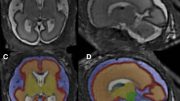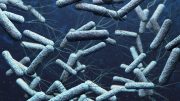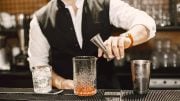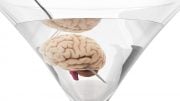
Excessive alcohol consumption can lead to both short-term and long-term health problems. However, researchers have discovered a potential solution by genetically engineering a probiotic to express an enzyme called ADH1B, which accelerates the breakdown of alcohol in the body. In mice studies, those treated with the probiotic showed faster recovery from alcohol exposure and fewer resulting health problems compared to untreated mice.
Overconsumption of alcohol can result in severe hangovers, characterized by headaches, fatigue, and nausea. Additionally, it is associated with numerous health issues such as heart disease, cirrhosis, and weakened immunity. While reducing alcohol intake is one way to prevent these negative effects, Chinese researchers have developed an alternative method: a genetically-engineered probiotic.
In a study published in Microbiology Spectrum this week, the scientists outlined their approach and shared their findings from experiments on mice. The treatment lowered alcohol absorption, extended alcohol tolerance, and accelerated recovery time following alcohol exposure. Although human trials have not yet been conducted, the researchers speculate that this probiotic could offer a novel approach to minimizing alcohol-related health problems and liver problems in general.
Meng Dong, Ph.D., at the Chinese Academy of Science’s Institute of Zoology, who worked on the study, noted that clinical applications may extend beyond alcohol-related conditions. “We believe that genetically engineered probiotics will provide new ideas for the treatment of liver diseases,” she said.
The human body primarily uses forms of an enzyme called alcohol dehydrogenase, or ADH, to metabolize alcohol. But some variants are more effective than others: Some studies have found that a form called ADH1B, found primarily in East Asian and Polynesian populations, is 100 times more active than other variants. Previous studies on mice have shown that viral vectors genetically engineered to express ADH1B can accelerate the breakdown of alcohol, but that approach hasn’t been shown to be safe in humans.
Motivated by those findings, Dong and her colleagues looked for a safer delivery method, focusing on the probiotic Lactococcus lactis, a bacterium often used in fermentation. They used molecular cloning to introduce the gene for human ADH1B into a bacterial plasmid, which was then introduced into a strain of L. lactis. Lab tests confirmed that the probiotic secreted the enzyme. The researchers encapsulated the probiotic to ensure it would survive against stomach acid, then tested it on 3 groups of 5 mice, each exposed to different levels of alcohol.
Untreated mice showed signs of drunkenness 20 minutes after exposure to alcohol. When the mice were placed on their backs, for example, they were unable to get back on their feet. But in the group that received a probiotic that expressed human ADH1B, half the mice were still able to turn themselves over an hour after alcohol exposure. A quarter never lost their ability to turn themselves over.
Further tests showed that 2 hours after exposure, blood alcohol levels in the control group continued to rise, while those in the probiotic-treated mice had begun to fall. In addition, the researchers found that treated mice showed lower levels of lipids and triglycerides in their livers, suggesting that the probiotic could alleviate alcohol-related damage to that organ.
The next step, Dong said, is to investigate whether the potential therapeutic effect of the modified probiotic extends to humans. “We are excited about the improvement of recombinant probiotics in acute alcohol-induced liver and intestinal damage,” Dong said.
Reference: “Oral Probiotic Expressing Human Ethanol Dehydrogenase Attenuates Damage Caused by Acute Alcohol Consumption in Mice” by Xiaoxiao Jiang, Chunlong Yan, Hanlin Zhang, Li Chen, Rui Jiang, Kexin Zheng, Wanzhu Jin, Huijuan Ma, Xiaomeng Liu and Meng Dong, 11 April 2023, Microbiology Spectrum.
DOI: 10.1128/spectrum.04294-22









Be the first to comment on "New Potential Probiotic Treatment Reduces Alcohol Absorption, Prolongs Alcohol Tolerance, and Shortens Recovery Time"